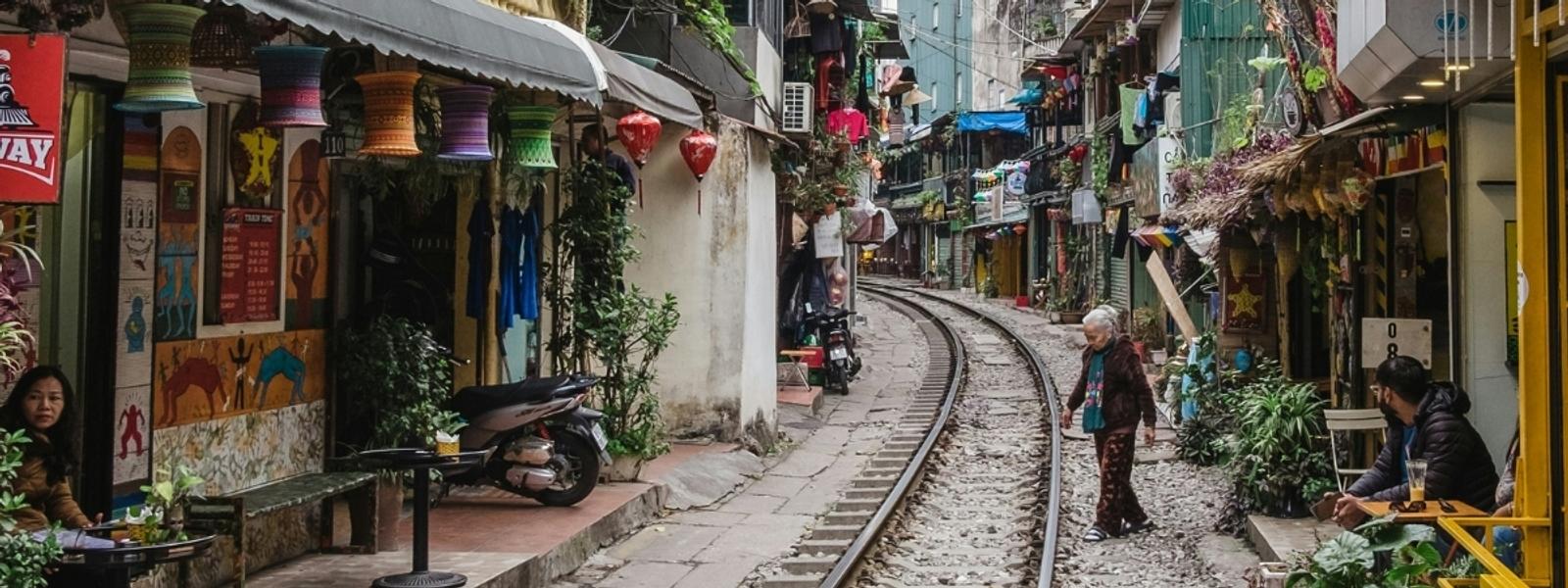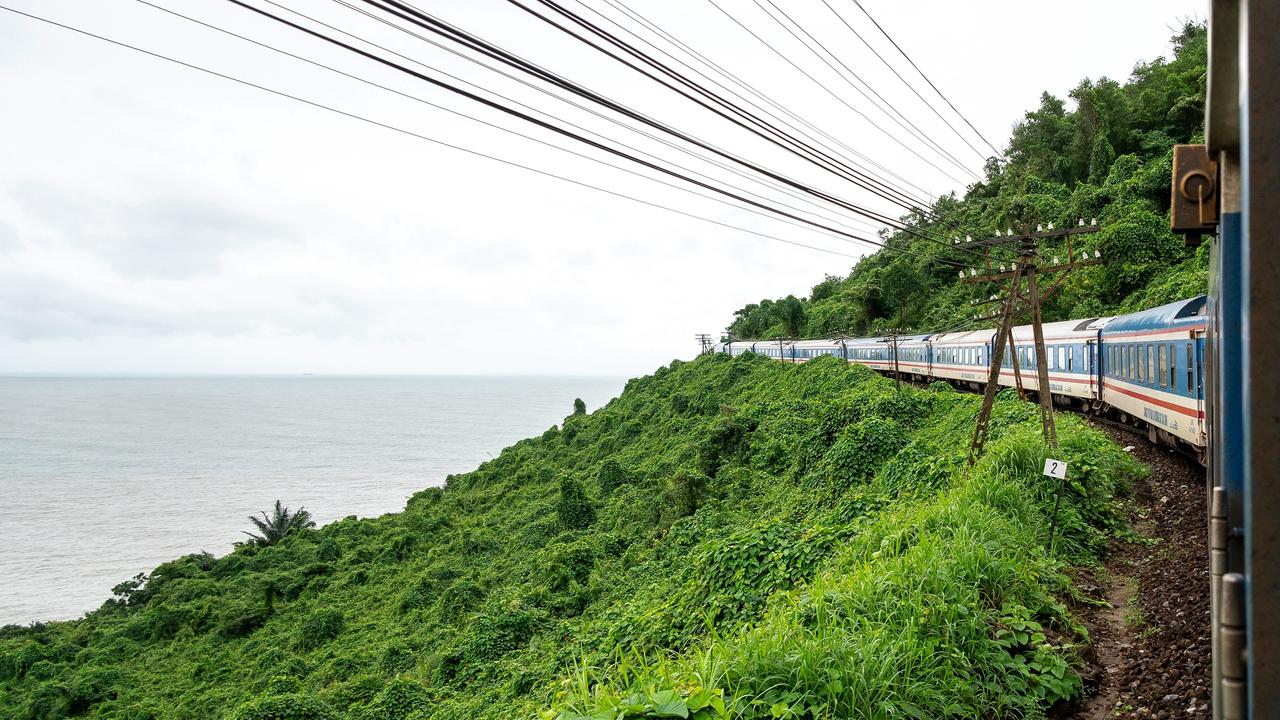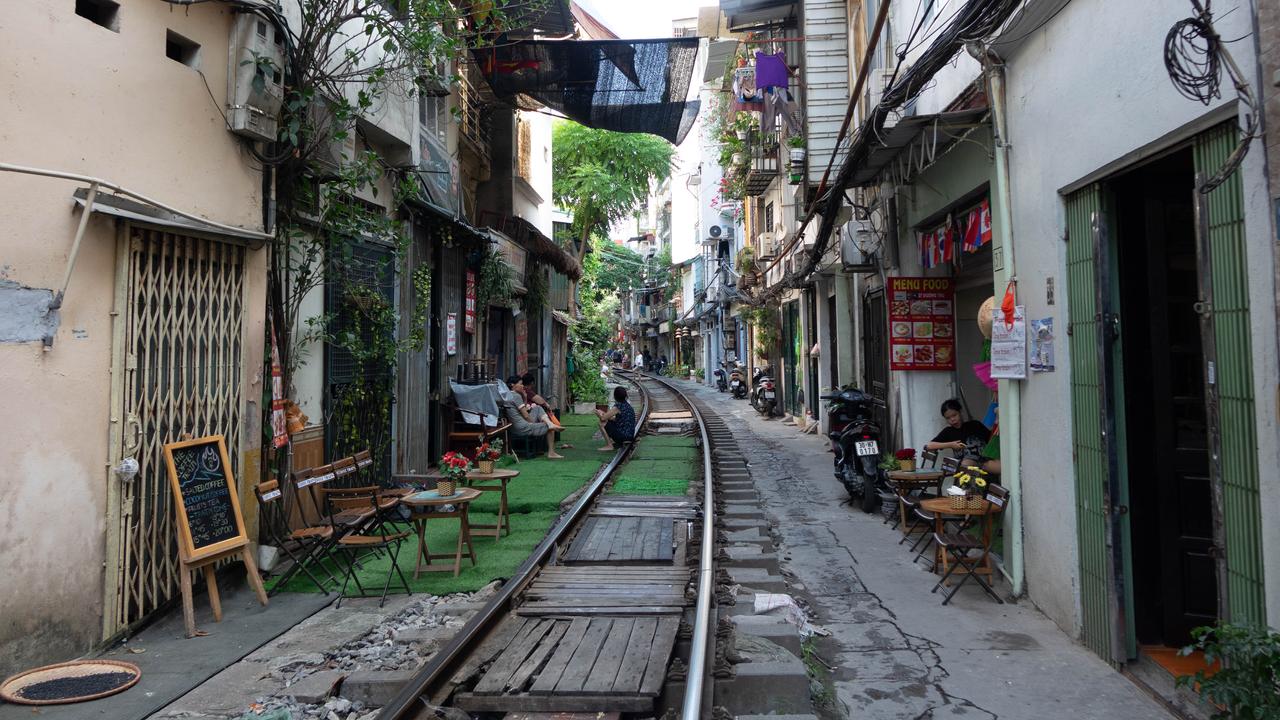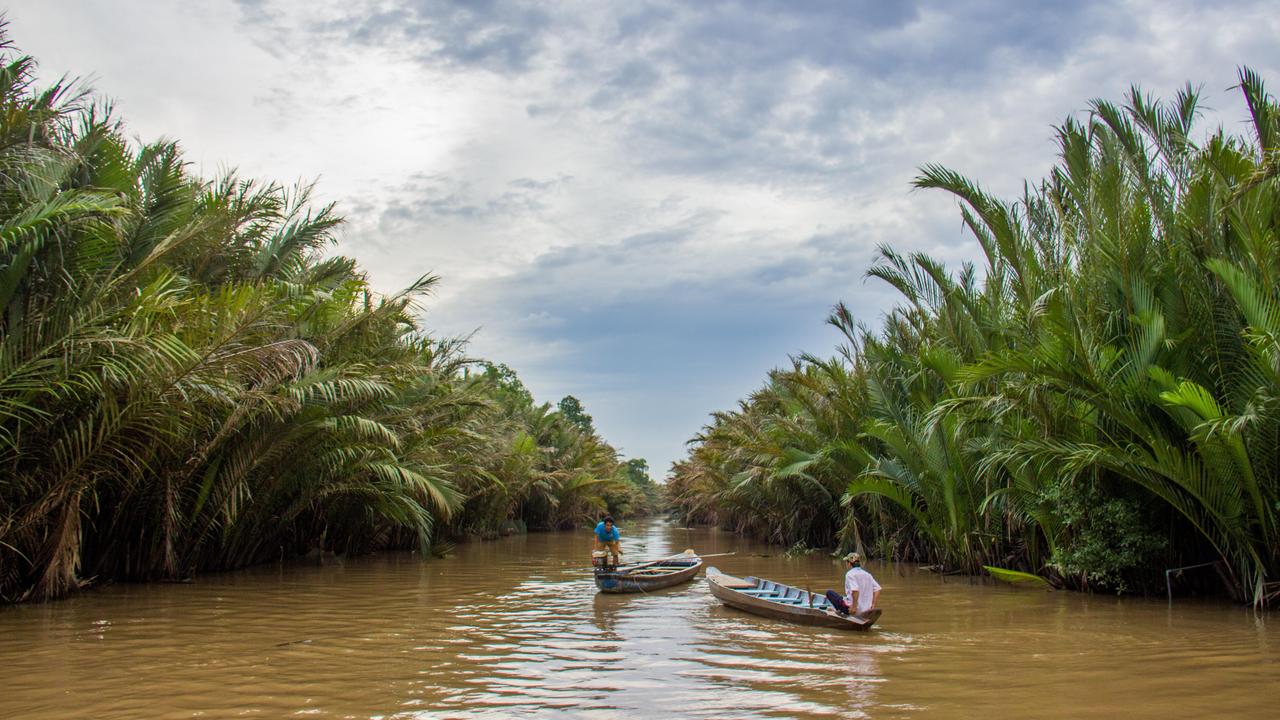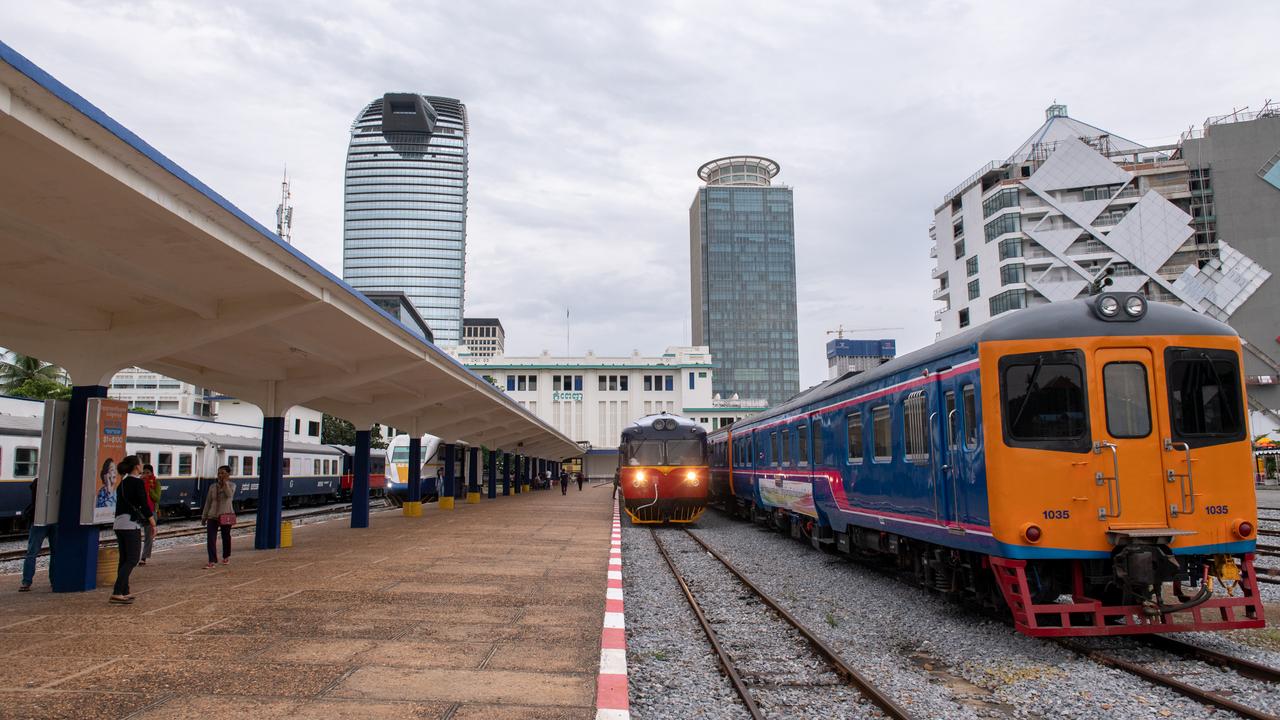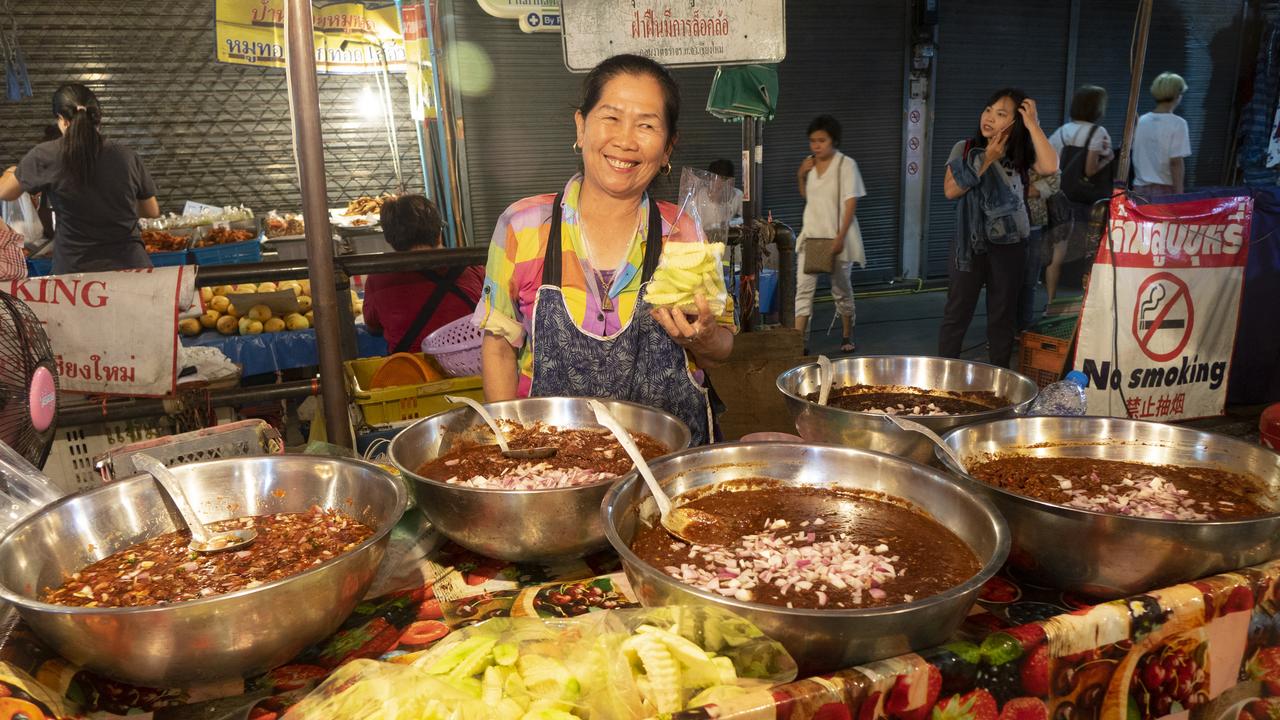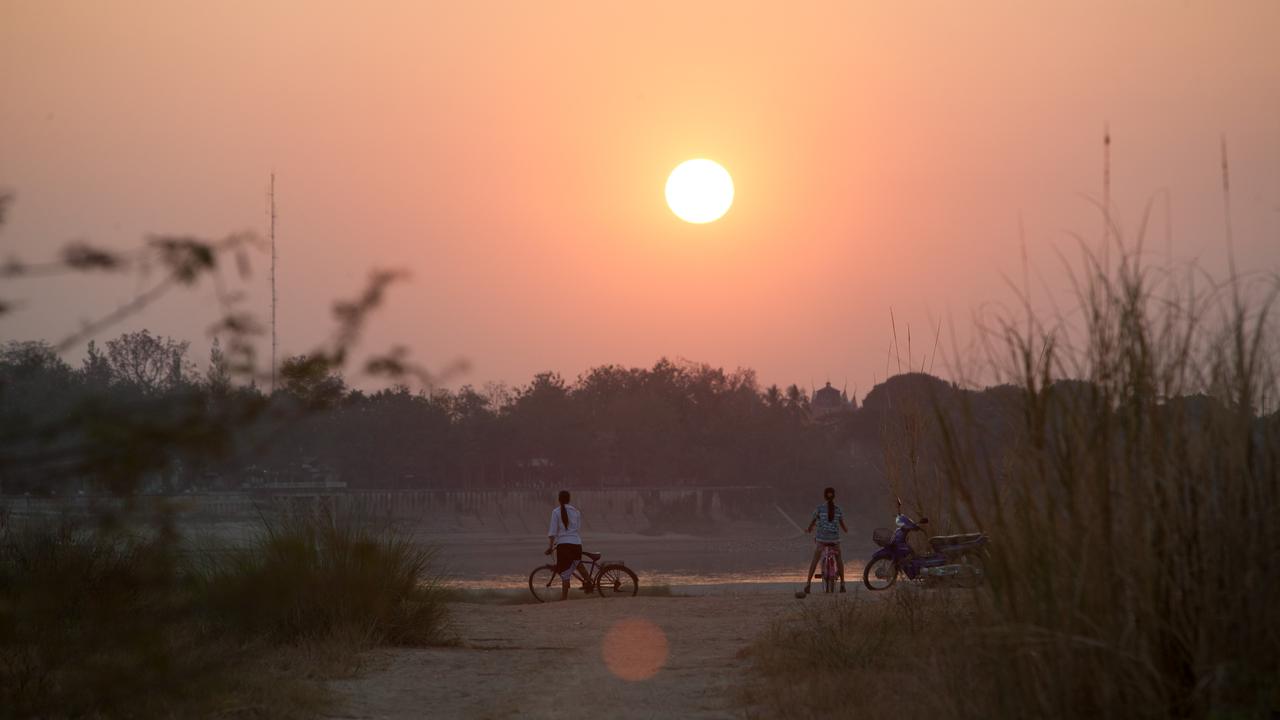Rail, Road & River through South-East Asia
We’ve always loved taking rail journeys in Asia: the naturally slower pace, a ringside seat to the region’s changing landscapes, opportunities to relax and reflect, and time to get to know your fellow passengers. Rail travel can feel like harking back to a different era, and the stories behind the tracks reveal so much about a country’s history, geography and culture.
When you settle into the different rhythms, and cultivate a ‘go with the flow’ philosophy, South-East Asia’s impressive rail network, navigable rivers and overland trails really come into their own on a multi-country holiday. From the brash, enticing bustle of Bangkok, the options for travelling on by land are almost endless, but heading north to Chiang Mai, Chiang Rai and everything in between, then down-river into Laos, is a great start. Strike out overland to Vietnam, traversing the length of the country by road and rail, then meander leisurely back through Cambodia for the perfect Indochina ‘loop’.
This multi-country itinerary is one of our ultimate routes through the region, and a fantastic way to see Asia by rail. It is packed with much more than the average trip - 59 enriching days of rail, road and river travel, with big hits of Indochina’s diverse culture at every stage. Of course, not everyone can spare a couple of months to circumnavigate Thailand, Laos, Vietnam and Cambodia, but we hope it inspires you to take the train in Asia. Whether you’re travelling for two, four, six weeks or more, we’ll create an Asian rail adventure to fit you perfectly.
You can, of course, hop between many of these destinations by plane, but the benefits of taking a land-based route are more than worth the swap. Multi-country Asia holidays by train give you a taste of those past rugged backpacking travels, but with the tailor-made finesse of a bespoke trip. You leave a naturally lighter environmental footprint too, and can really embrace the perspective shift to ‘making the journey the destination’ - unbeatable. Give yourself space to appreciate that long-journey serendipity, and be inspired by Selective Asia Founder Nick’s transcontinental train adventure.
All roads lead to Bangkok
With a little poetic licence, we’d argue that you can’t beat Bangkok, Thailand’s bustling capital, as a classic jumping-off point into South-East Asia. Drift downriver by ferry and pick up a bicycle to explore the lush greenery, secluded temples and Muay Thai gyms of the Bang Krachao sub-district, known as ‘The Green Lung of Bangkok’. Stroll through the urban jungle, savouring every moment, before hopping on an overnight train to the rural north. Take a detour to Kanchanaburi for a sombre-edged trip on the ‘Death Railway’, or to Samut Songkran, where the stalls of the gently-bustling Mae Klong Railway Market are hastily retracted each time a train approaches.
Trains, Thai-style
Constantly expanding and upgrading, Thailand’s railways are on track to high speed efficiency - no mean feat when you consider the foundations were laid in the 1890s! However, with a network covering 47 provinces, it’s still a work in progress. Depart from the gleaming concourse of Bangkok’s Krung Thep Aphiwat Central Terminal - South-East Asia’s largest railway station - in one of Thailand’s newest sleeper cars, and wake to the sun rising over the distant mountains. Rumble into the quaint-feeling station at Chiang Mai in the early hours, where you’ll be greeted by a historic locomotive in situ: a relic of the steam-driven past.
Chiang Mai, Chiang Rai & Thailand’s rural north
The attractions of northern Thailand are many and it’s 100% worth going ‘off the rails’ to appreciate them. You’ll feel a change as soon as you step off the train, with northern Thailand’s contrasting climate, atmosphere and laid back feel. Head east to the city of Chiang Rai, with its stunning White Temple and bustling night markets; a temptingly short distance from the Laotian border. Take a winding route via Fang, swathed in forests and tea plantations, and spend time in the heart of the community with a stay at the Phumanee Lahu Home Hotel.
From rails to river
What Laos has (until recently) somewhat lacked in railways, it has always made up for when it comes to river travel. Board a small, traditional craft (comfy, but no cruise liner!), sit back and enjoy respectfully watching the world along the river banks go by. A pause in Pakbeng offers a moment of rural reflection before continuing downstream to Luang Prabang - a highlight of any trip through the region. Still a relatively small city, Luang Prabang retains much of its timeless charm and tranquillity. It's the perfect place to delve deeper into Laotian history and culture. Meet a local UNESCO specialist, pass time with one of the directors of the Buddhist Archives (an incredible collection of 35,000 historic photographs and documents) or spend a morning on a local organic farm, learning about exactly what goes into producing a ‘simple’ bowl of rice.
South-East Asia’s newest rail route
The somewhat controversial Laos-China Railway cuts a fresh path from Laos’ capital, Vientiane, all the way to China, navigating the region’s mountainous geography via 75 tunnels and 167 bridges. The trains thunder along at up to 160 km per hour, turning a journey that used to take days into one that takes hours. Board the sleek carriage and settle into a comfortable seat for a swift - almost frighteningly quick - ride to northern Oudomxay. As with many such developments, this railway has its doubters and its champions, and will continue to bring both challenges and benefits to the region as it connects northern Laos like never before.
Hit the road!
Every part of Laos has its charms, but the mountains, forests, rivers and settlements of northern Laos may well be one of the highlights of your journey. This area is undeniably easier to reach than it once was, but is definitely still on the less-visited list, allowing you plenty of headspace to immerse yourself in its raw and beautiful surroundings. If the journey thus far has felt a little bit too easy, fear not: the route from here to northern Vietnam involves adventure by boat and road via Nong Khiaw, remote Nam Et-Phou Louey National Park and Sam Neua. Pack your sense of adventure, and plenty of patience, for those longer days on the road! The reward? The rice terraced landscape of the picturesque Mai Chau Valley, where cosy eco lodges offer a great place to pause for a few nights, before heading onwards to Hanoi: Vietnam’s ever-changing, characterful capital.
The Reunification Express
In Vietnam, train travel comes into its own, with lines passing through a number of areas famed for their natural beauty. Once beyond the urban sprawl, scenes of villages, rice fields, buffalo, palm trees, lush green mountains and near-deserted stretches of coastline, will keep your head happily swivelling from side to side for hours. Although no individual train has ever officially carried the name, the north-south railway connecting Hanoi to Ho Chi Minh City is frequently referred to as the Reunification Express. Built to be ‘the backbone of Indochina’, it was established during the French colonial period, and completed over a span of 40 years. The legendary journey all the way from Hanoi to Ho Chi Minh City takes around 30 hours, so we certainly wouldn’t suggest trying to do it all in one go, but hopping on the train for a section or two is just the ticket.
Vast caves, History (ancient & modern), a UNESCO Old Town and endless beaches…
Chug out of Hanoi station at a leisurely pace, picking up speed as you settle down for the night in your simple sleeper berth. There are many tempting destinations to pick from at your journey's end; head underground to explore dramatic caves in Phong Nha Ke Bang National Park; cycle around historic Hue; feast on the architecture, atmosphere and food-scene of UNESCO-listed Hoi An Old Town; or stretch out on some of Vietnam's most beautiful, and relatively untouched, beaches. Looking to travel with all the bells and whistles? For a really sumptuous taste of train travel, Vietnam-style, make part of the journey in a high-end Vietage carriage boasting private booths, gourmet dining, free-flowing drinks and more, and arrive in Ho Chi Minh City with sublime tales from the trains.
On the water…
With your status as train connoisseur assured, it’s time to get back on a boat! South of Ho Chi Minh City, hop aboard for a day, or a night or two, exploring the thoroughfares and scenic backwaters of the Mekong Delta. Cruise down to Cambodia’s capital, Phnom Penh, to change up the pace for a few days of city living. Take a trip on one of Cambodia’s few passenger trains, the daily service to coastal Sihanoukville, although be prepared that the trains are often subject to delays - time to roll out that patience, and a good book, while you wait! Speed straight out of Sihanoukville to get sidetracked on a nearby island, such as Koh Rong, relaxing in sandy coves and venturing into the jungle interior.
Is it a train?
Back on the mainland, enjoy a brief adventure in the Cardamom Mountains before taking the rapidly-improving route to Battambang: the original home of what is, perhaps, Cambodia’s best-known train. Referred to locally as Norry (Nori), the service is more commonly known to visitors as the Bamboo Train, due to its frame overlaid with bamboo slats. Although the original Bamboo Train no longer operates, a new section was opened in 2018 to offer visitors a taste of the historic experience. The revamped train isn’t to everybody’s taste, but it’s certainly worth a conversation if it peaks your interest.
The end of the line
The slow pace of riverside Battambang and the surrounding villages is replaced by the ever-growing energy of Siem Reap; quite the contrast. The city makes for a friendly, lively base for visiting the region’s renowned temples. Both the best-known Angkor temples, and those slightly further afield, are among the most spectacular in Asia, making for a memorable conclusion to any trip. But it doesn’t have to end there… Continue overland to the Thailand border, where you could catch a train back to Bangkok, then south to Surat Thani, the jumping off point for many of Thailand's famed beaches and islands. Then, why not continue on to Malaysia, Singapore and beyond; Asia is your oyster…
A note on cost…
The guide price of £14,990US$19,090 is a per person price (not including international flights) staying 8 nights in Thailand, 12 nights in Laos, 23 nights in Vietnam and 15 nights in Cambodia, with 6 standout train journeys, plus boat and road transfers, and a mix of different accommodation styles which can be tailored to your preferences.
For those with less time to spare, the guide price of £5,890US$7,590 is a per person price (not including international flights) for a shorter route staying 11 nights in Laos and 10 nights in Vietnam only, with in-journey transfers by rail, river and road.
